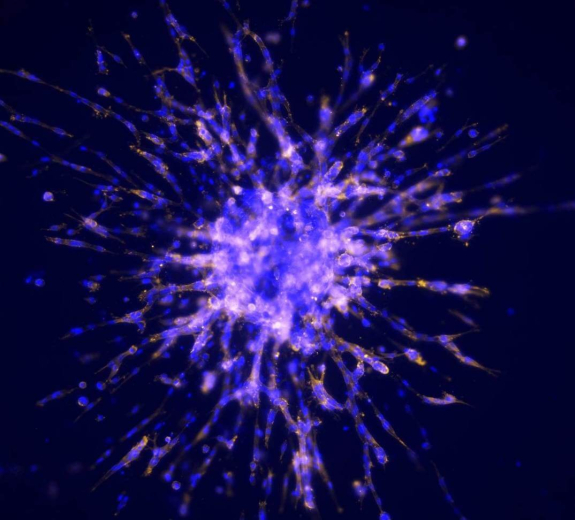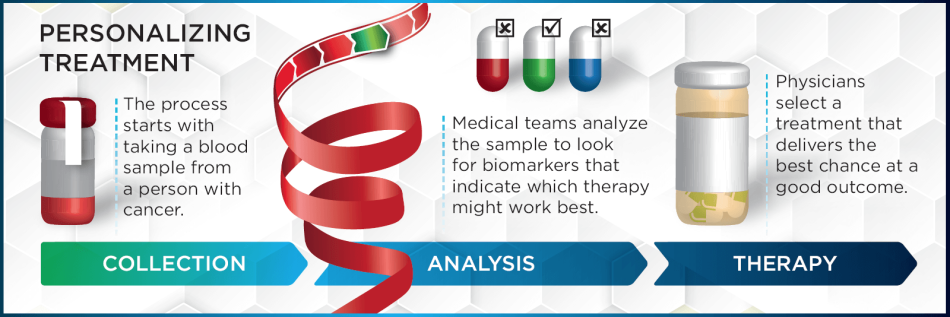
How Immunotherapy Holds Clues to Autoimmunity
Immunotherapy is one of the biggest medical breakthroughs in decades: It can cure some cancers by telling the immune system to find and kill cancer cells. But when doctors started using immunotherapies called checkpoint inhibitors, some patients had a puzzling side effect – their immune system also attacked healthy tissue.
The reaction is strangely similar to autoimmune disease. And it caught the attention of BRI President Jane Buckner, MD, and other scientists including Peter Linsley PhD, Lynn Rose, PhD and Erik Wambre, PhD.
“Some patients have reactions that look like rheumatoid arthritis or type 1 diabetes (T1D),” Dr. Buckner says.
Our team recently launched two studies investigating this connection. The research could help predict who will respond to checkpoint inhibitors, so doctors can match patients with treatments that are most likely to work. It could also provide clues on what triggers autoimmunity.
“There’s a connection between checkpoint inhibitors and how autoimmunity starts,” Dr. Buckner says. “The more we know about what causes autoimmunity, the closer we get to therapies that stop it.”

Custom Treatment
The immune system is equipped to hunt down cancer cells. But some cancers send signals that put the brakes on. Checkpoint inhibitors release that brake so the body can attack tumors.
These therapies are far less toxic than chemotherapy and have sparked remission of melanoma and other solid tumors. Still, they only work for 20 to 30 percent of patients. The National Cancer Institute (NCI) recently awarded BRI a $4.5 million grant to pinpoint why checkpoint inhibitors only work for some patients and why they can lead to autoimmunity.
“It might seem unusual that BRI is getting cancer research grants, but we have decades of experience figuring out why immune cells malfunction, so it makes sense to apply that expertise to cancer,” Dr. Buckner says.
BRI scientists are collecting blood samples from patients at Virginia Mason’s Cancer Institute who receive checkpoint inhibitors for cancer. Then they examine these samples, looking for biomarkers that indicate who responds to immunotherapy.
“Our goal is to help doctors know when checkpoint inhibitors will be effective, so they can match patients with the best therapy from the start,” Dr. Wambre says.
Dampening Immune Response
The research team is also using patients’ cells to look for clues about why some patients have autoimmune reactions.
“We’re interested in this common factor that turns the immune system on and off,” Dr. Rose says. “Knowing more about that could lead to therapies that turn down the immune response in people with autoimmune disease.”
Clues About T1D
Dr. Buckner and Dr. Wambre are investigators in a separate, collaborative project looking at the development of insulin-dependent diabetes in patients taking checkpoint inhibitors. This $10 million project is funded by the Parker Institute for Cancer Immunotherapy, JDRF, and The Leona M. and Harry B. Helmsley Charitable Trust.
Researchers suspect that immunotherapy wakes up a type of T cell that attacks healthy tissue.
“We’re studying patient samples to see if these special T cells are activated,” Dr. Buckner says.
She hopes this research will help predict which cancer patients might react to immunotherapy with a T1D-like response. It could also lead to broader insights about T1D.
“If we can figure out why the immune system attacks the pancreas in people who take checkpoint inhibitors, it could help us understand why these attacks happen in other people too,” Dr. Buckner says.
Goal: Healthy Immune Systems
This research is the latest step in BRI’s quest to uncover common links among many immune system diseases, in hopes of sparking a new era of treatment.
“We’re getting closer to figuring out why the immune system overreacts or under-reacts in many diseases,” Dr. Buckner says. “And that means we’re closing in on therapies that bring immune systems back to health.”
Immuno-what? Hear the latest from BRI
Keep up to date on our latest research, new clinical trials and exciting publications.


